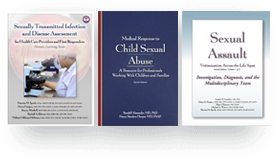The Correlation Between Child Abuse and Neurodivergence
The Month of April
April serves as the awareness month for a multitude of causes, including National Child Abuse Prevention Month and Autism Awareness Month. Unfortunately, neurodivergent children can be very vulnerable to the perils of abuse. As a result, a correlation exists in regards to the occurrence of child abuse among children who are neurodivergent.
Prevalence and Correlation of Abuse Among Neurodivergent Children
An article written for SpectrumNews.org, uses a study from the South Carolina Department of Social Services, whose findings were reported in 2018. The findings showed that children on the spectrum were up to 3 times as likely to experience maltreatment as opposed to neurotypical children. Spectrum is an organization specifically dedicated to autism research. In addition, numerous other studies on the subject suggest that this number is consistent. Neurodivergent children are found to be up to 3 times more likely to experience maltreatment in the forms of bullying, physical, and sexual abuse.
The CDC has also found that a child having autism significantly increases the likelihood of being referred to child protective services. A 2022 article from Frontiers in Behavioral Neuroscience on sexual violence uses several studies to emphasize the increase in vulnerability for people with autism. Although the current research establishes this correlation, it is important to keep in mind that much more research should be done. In addition to this, there is clearly an alarming prevalence that warrants more focus from professionals.
Resources and Prevention
While studies have indicated a correlation between children with Autism or an intellectual disability and abuse, there is very little distinct research specific to neurodivergence. In order to properly address the issue, more research needs to be done in order to understand exactly what these people are experiencing. One positive aspect of this struggle is therapies that are being developed in order to assist people on the spectrum. One form of therapy called trauma-focused cognitive behavioral therapy has shown positive results for children with autism.
If you know or suspect that a child is experiencing abuse, you can call the Childhelp® National Child Abuse Hotline at 1.800.422.4453. You can also visit the National Children’s Alliance website at nationalchildrensalliance.org to search for a Child Advocacy Center in your area.
Our Resources- Present and Future
At STM Learning, we strive to offer up-to-date information relevant to our texts. Several of our forthcoming books include information in regards to not only child abuse, but also how it affects children with disabilities. In our forthcoming text on interpersonal violence, we devote a chapter specifically to how interpersonal violence intertwines with child maltreatment. Additionally, in our forthcoming book, Mental Health Issues of Child Maltreatment: Contemporary Strategies, we have a specific chapter that focuses on children with disabilities. Research and resources on these topics are vital to approaching them appropriately, both in regards to how they intersect, as well as on their own.
To explore our published texts relevant to the topics of child maltreatment, visit our bookstore. Follow us on social media for updates and news in regards to our forthcoming texts.
This blog was written by STM Learning’s editorial staff for educational purposes only. It is not intended to give specific medical or legal advice. For expert information on the discussed subjects, please refer to STM Learning’s publications.








